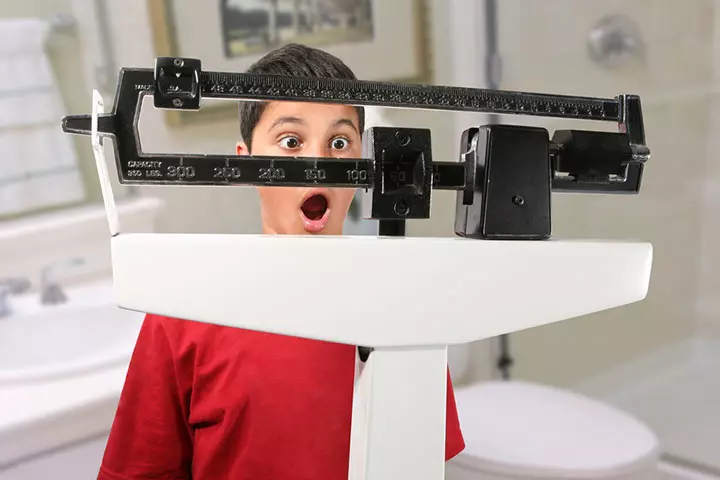
Image: Shutterstock
We all want our children to be proud of who they are, and this includes the way they look as well. Everyone differs in terms of physical appearance. While some people are taller than others, others are darker than others and that’s perfectly okay. But when you’re growing up, it can be hard for some kids to embrace their differences and appreciate their physical appearance. And teaching your kids to tackle this issue and improve their body image can be tricky, especially if it’s centered around their body type and how skinny or fat they look. Now, we all know that being obese is unhealthy and promoting an unhealthy lifestyle will not serve kids in the long run as it can lead to many health complications. But how do you encourage your kids to be healthy, reassure them and help them be confident in the way that they look? If you’d like a few tips and tricks we’ve got you covered. So, keep reading!
1. Take Small Steps Towards Having Healthy Discussions
Weight can be a sensitive topic for many people, even kids. Although it has to do with one’s anatomy, it is a social issue as well. It affects some groups of people more than others. For example, according to the U.S. Department of Health and Human Services Office of Minority Health, 25.5% of Latino kids between the ages of 7 and 17 are diagnosed with clinical obesity. But as rates of obesity increase, so does the rate of eating disorders in the Latino community. Another study conducted by the Journal of Youth and Adolescence found that Latino kids in the fifth grade have fewer positive feelings towards their bodies than their white counterparts. It also uncovered that half of the Latino children were already dieting.
More than the influence of coaches, teachers, health professionals or pediatricians, it’s parents who play a huge role in terms of a child’s eating habits and their ability to feel good about their body image. Parents break down complex thoughts and help children wrap their heads around them. So, start small when it comes to approaching the body image conversation. Start by conveying that some people are simply rounder and heavier than others, and that’s okay as long as they lead a healthy lifestyle. Being a tad bit on the chubby side doesn’t make your child unfit or obese. Just like how there’s nothing wrong with being skinny or a little on the bonnier side.
2. Don’t Stress About The Scale
We grew up in a time where our parents told us not to eat things because if we did we’d get fat. And kids who are repeatedly told this are more likely to go on rigorous diets and exhibit eating disorder-like symptoms, or behavior such as binge eating or using laxatives. Teens who grew up with parents who stressed more on eating well-balanced healthy meals and who relied on the importance of nutritious food however, were less likely to to face any eating problems in the future. It is also observed through several studies that overweight kids who have parents who exhibit a gentle and health focused approach towards food have fewer mood swings, they are also less likely to have psychological and disordered eating problems than those kids who have parents that are judgemental and constantly care about how many calories their child is consuming. So instead of teaching your kids what food is good or bad for them, teach them that they can have everything in moderation. But some foods are better for the body than others.
3. Make A Healthy Change For Your Family
If you’d like your little one to start eating a little healthier, then start making that change at home. Clean out your pantry and pay attention to the ingredients that you’re using. Don’t keep many unhealthy snack options in the house. Make sure that your child isn’t unnecessarily snacking out of hunger. You can also use more polite language while talking about their body. Instead of telling your kids not to eat something, ask them if they can make a better choice at picking out what they eat. Instead of telling them that being fat is bad for them, inform them that weight is a way in which one can measure health. But also educate them about the importance of sleep, keeping their blood pressure and sugar levels stable and staying active. It’s all these factors that contribute to your child’s overall wellbeing.
Your kids need to know that you will uplift them to feel good about themselves and help them make healthy lifestyle changes while still being positive about their body image. When you do this, your kids will follow suit and treat their bodies with the care and respect it deserves as well!
Sources
- Intergenerational Transmission of Parent Encouragement to Diet From Adolescence Into Adulthood, American Academy Of Pediatrics
- Parental and Peer Factors Associated with Body Image Discrepancy among Fifth-Grade Boys and Girls, Journal Of Youth and Adolescents
- Childhood and Adolescent Obesity in the United States: A Public Health Concern, NCBI
- Obesity And Hispanic Americans, The Office of Minority Health
















